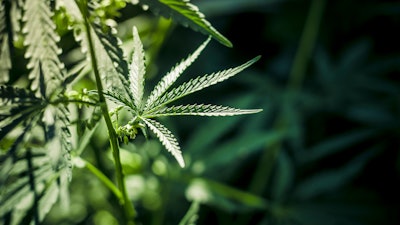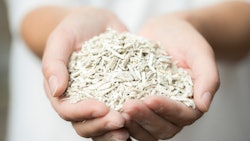
In a letter sent to attorney Rod Kight Feb. 13, the U.S. Drug Enforcement Administration (DEA) declared delta-8- and delta-9-THC-O acetate as Schedule I controlled substances.
Kight sent a letter to the DEA Aug. 17, 2022, inquiring about the cannabinoids’ legal status under the Controlled Substances Act (CSA).
“I represent many businesses in the hemp industry and began to see the proliferation of THC-O products on the market,” Kight told Cannabis Business Times in an email. “Since THC-O is not produced by the cannabis (hemp) plant, I had concerns that the DEA would view it as illegal ‘synthetic THC,’ rather than lawful ‘hemp.’”
RELATED: THC-O Acetate Q&A with Dr. Ethan Russo: ‘Don’t Go There’
Kight’s concerns regarding THC-O led him to ask the DEA for its opinion on the cannabinoid. In the letter the DEA sent to Kight, agency officials stated that delta-9-THC-O and delta-8-THC-O do not fall under the definition of hemp because they do not occur naturally in the cannabis plant and are synthetically made.
“Delta-9-THC-O and delta-8-THC-O are tetrahydrocannabinols having similar chemical structures and pharmacological activities to those contained in the cannabis plant. Thus, delta-9-THC-O and delta-8-THC-O meet the definition of ’tetrahydrocannabinols,’ and they (and products containing delta-9-THC-O and delta-8- THC-O) are controlled in schedule I,” DEA officials wrote.
Kight told CBT that he agrees with the DEA’s response.
“As a strong advocate for hemp and also for cannabis generally, I support the industry's research and expansion into minor cannabinoids produced by the plant,” Kight said. “For instance, I authored the legal argument for the lawful status of hemp delta-8 THC, which was ultimately confirmed by the DEA. However, marketing a molecule, such as THC-O, as ‘hemp’ that the plant does not naturally produce is not supported by law and ultimately undermines the industry's legitimacy. Additionally, I am concerned with recent evidence that THC-O may be harmful in certain circumstances.”
On the other hand, while he is against THC-O, he argues that delta-8 THC falls under the definition of hemp in the 2018 Farm Bill.
“[Delta]-8 is distinguishable from THC-O because the hemp plant naturally produces [delta-] 8; however, it does not produce THC-O. From this perspective, and unlike [delta-] 8, THC-O is properly seen as synthetic THC, not ‘hemp.’ For this reason, I have consistently advised clients not to create or distribute THC-O,” Kight wrote in a Feb. 13 post.
Though delta-8 is found naturally in small amounts in cannabis, it can also be converted in a lab from CBD and delta-9 THC, CBT previously reported.
RELATED: Understanding Delta-8-THC: Where Does It Come From?
Kight added that he advises individuals not to vape THC-O based on a recent study published in the Journal of Medical Toxicology, which found that vaping the semi-synthetic cannabinoid could trigger another e-cigarette or vaping use-associated lung injury (EVALI) epidemic. The first EVALI outbreak occurred in 2019, CBT reported.
























